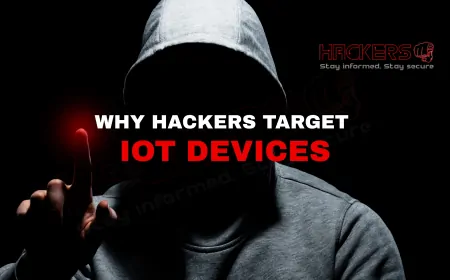What Does India’s New DPDP Act Mean for Retailers Collecting Mobile Numbers?
Picture this: You're at your favorite neighborhood supermarket, loading up your cart with groceries. As you head to the checkout, the cashier smiles and asks, "Ma'am, can I have your mobile number for our loyalty program? It'll save you 10% today!" You've heard this a hundred times it's routine, right? But what if that simple request could now land the store in hot water, with fines running into crores? Welcome to the new reality under India's Digital Personal Data Protection Act, or DPDP Act, which is shaking up how businesses handle your phone number. Passed in August 2023, the DPDP Act finally gives Indians a shield for their personal data in the digital age. And with draft rules out in January 2025 and final ones expected by late September 2025, enforcement is just around the corner. For retailers—from big chains like Reliance Retail to the corner kirana store collecting mobile numbers isn't just about perks anymore. It's about getting clear permission, explaining why, and respecting your right to say no. No more assuming you'll hand it over for a discount. In this post, we'll break it down simply: What the Act says, why it targets everyday data like your number, and what it means for shoppers and shopkeepers alike. Whether you're a retailer scrambling to update your POS system or a customer tired of unwanted promo texts, this guide has you covered. Let's explore how this law could make shopping fairer and safer for everyone.

Table of Contents
- What is the DPDP Act and Why Does It Matter?
- Personal Data Basics: Why Mobile Numbers Count
- The Heart of It: Consent and Notice Requirements
- Obligations for Retailers as Data Fiduciaries
- Old Habits vs. New Rules: A Comparison Table
- Steps for Retailers to Comply Without the Headache
- Your Rights as a Customer: What You Can Demand
- Business Impacts: Opportunities and Challenges
- Enforcement Timeline and the Road Ahead
- Conclusion
What is the DPDP Act and Why Does It Matter?
The Digital Personal Data Protection Act, 2023 DPDP for short is India's first big law dedicated to keeping your personal info safe online and offline. Think of it as a rulebook for how companies can collect, use, and store data like your name, email, or yes, your mobile number. It came after years of debate, sparked by a 2017 Supreme Court ruling that privacy is a fundamental right.
Before DPDP, we had bits and pieces like IT Act rules from 2011 but nothing comprehensive. Now, with the Act passed in August 2023, and rules being finalized in 2025, it's set to cover any business handling "digital personal data." That's data about you that's identifiable, processed electronically. For retailers, this hits home because mobile numbers are the gateway to loyalty apps, SMS offers, and targeted ads.
Why now? India processes zillions of data points daily UPI transactions, e-commerce orders, you name it. But frauds and leaks have surged. In 2024, data breaches cost businesses over ₹20,000 crore. DPDP aims to build trust: Businesses get clear guidelines, customers get control. It's not anti-business; it's pro-responsibility. As of September 2025, with final rules due by month's end, retailers have a narrow window to gear up.
In essence, the Act balances two things: Your right to privacy and the need for data to run services. For a retailer, asking for your number to send a birthday coupon? Fine, if done right. But forcing it for a bill? Not anymore.
Personal Data Basics: Why Mobile Numbers Count
Let's keep it simple: Personal data is anything that points to you as an individual. Under DPDP, it's "digital" if handled via computers or apps. Your mobile number? Prime example. It's unique, links to your identity, and can lead to more like your location via SMS or purchase history.
The Act doesn't single out mobile numbers, but they're everywhere in retail. Scan a QR at a mall? Enter your number. Buy online? Same story. Retailers use them for everything from verifying orders to building customer profiles. But here's the catch: Once collected, that number is "personal data," triggering DPDP rules.
Why does this matter? Because misuse is rampant. Unsolicited calls, spam texts over 1.5 billion in 2024 alone, per TRAI. DPDP classifies retailers as "data fiduciaries"—the bosses deciding what data to collect and why. You're the "data principal," the owner with rights over it.
Key takeaway: Mobile numbers aren't just digits; they're keys to your digital life. The Act ensures they're handled with care, not casually scribbled on a bill.
The Heart of It: Consent and Notice Requirements
Consent is the star of DPDP—your green light for data collection. But it's not a casual "yes." It must be free (no pressure), specific (for one clear purpose), informed (you know the details), unconditional (no strings like "discount only if you share"), and clear (easy to understand, maybe a checkbox).
Before asking, retailers must give a "notice." This is like a quick info sheet: What data? Why (e.g., "for loyalty rewards")? How long stored? Your rights? In simple language, no legalese. For mobile numbers, it might say: "We'll use your number for SMS updates on offers. You can withdraw anytime."
Exceptions exist—no consent needed for "legitimate uses" like government services or emergencies. But for retail? Almost always consent required. Withdrawal? Easy, anytime, and data must be erased if no other purpose.
For kids under 18, parents consent. Retailers tracking via apps? Same rules apply. Bottom line: Consent turns data collection from a habit into a conversation.
Obligations for Retailers as Data Fiduciaries
As data fiduciaries, retailers have homework. First, ensure data accuracy—double-check that number before saving. Second, security: Use safeguards like encryption to prevent hacks. A breach? Notify the Data Protection Board and you within 72 hours, per draft rules.
Third, storage limits: Keep data only as long as needed. Purpose done (e.g., loyalty program ends)? Delete it. Fourth, appoint a Data Protection Officer if you're a "significant" fiduciary—big players handling tons of data.
For mobile numbers, this means secure databases, no sharing without consent, and regular audits. Small shops? Still apply, but scaled down. Non-compliance? Fines up to ₹250 crore, based on breach gravity.
It's doable: Many retailers already use GDPR-like tools. DPDP just makes it mandatory.
Old Habits vs. New Rules: A Comparison Table
To see the shift clearly, check this table comparing pre-DPDP and post-DPDP practices for collecting mobile numbers at checkout.
| Aspect | Pre-DPDP (Old Habits) | Post-DPDP (New Rules) |
|---|---|---|
| Consent Needed? | Often assumed or implied (e.g., "for billing") | Explicit, free, and informed—must say yes knowingly |
| Notice Provided? | Rarely, if at all | Mandatory before collection: purpose, rights, etc. |
| Can It Be Mandatory? | Yes, tied to discounts or service | No—forcing is a violation |
| Data Storage | Indefinite, no clear policy | Only as long as needed; erase after |
| Breach Response | Optional notification | Mandatory to board and affected within 72 hours |
| Penalties | Vague under IT Act | Up to ₹250 crore |
This snapshot shows the pivot from casual to careful. It's a wake-up call, but one that builds long-term trust.
Steps for Retailers to Comply Without the Headache
Overwhelmed? Here's a practical roadmap:
- Audit Current Practices: List where you collect numbers bills, apps, events. Check consent flows.
- Update Notices: Craft simple templates: "We need your number for [purpose]. Stored for [time]. Withdraw via [method]."
- Tech Tweaks: Add consent checkboxes to POS systems or apps. Use tools like consent management platforms.
- Train Staff: Teach cashiers: "Ask, explain, accept no." Role-play scenarios.
- Set Policies: Data retention schedules, security protocols. Appoint a privacy point person.
- Monitor and Audit: Regular checks; handle complaints swiftly via grievance channels.
Start small: Pilot in one store. Costs? Minimal for basics, but saves fines. Big chains like Big Bazaar are already rolling out digital consent forms.
Your Rights as a Customer: What You Can Demand
You're not powerless DPDP empowers you as the data principal. Key rights:
- Access Info: Ask what data a retailer has on you, free once a year.
- Correction/Erasure: Fix errors or delete if purpose served (the "right to be forgotten," sort of).
- Nomination: Pick someone to manage your data if you're incapacitated.
- Grievance Redressal: Complain to the fiduciary first, then the Data Protection Board.
For mobile numbers, say no to sharing, or withdraw later via email/SMS. False complaints? Small fine, but use wisely. This flips the script: You're in control.
Business Impacts: Opportunities and Challenges
For retailers, it's a mixed bag. Challenges: Reworking loyalty programs—fewer numbers mean smaller databases. Compliance costs could hit ₹5-10 lakh for small shops. Spam fines loom large.
Opportunities? Trust builds loyalty. Ethical data use attracts conscious shoppers Gen Z especially. Innovate: Opt-in rewards via apps, personalized without creepy tracking. E-commerce giants like Flipkart are pivoting to value-based consent, boosting retention 20% in pilots.
Overall, it's a leveler: Ethical players win. With 70% of Indians online by 2025, compliant retailers tap a safer market.
Enforcement Timeline and the Road Ahead
Timeline: Act passed 2023; draft rules Jan 2025; final by Sep 28, 2025. Phased rollout—consent rules first, then full by mid-2026. Data Protection Board oversees, with appeals to Telecom Disputes Tribunal.
Future? Aligns with global like GDPR, easing exports. Cross-border data? Allowed unless restricted. Expect apps for easy consent, AI for compliance. India could lead in privacy-by-design retail.
Stay tuned: Enforcement will evolve, but the message is clear—data with dignity.
Conclusion
In summary, India's DPDP Act is a game-changer for retailers collecting mobile numbers, mandating explicit consent, clear notices, and strong safeguards. It protects customers from unwanted intrusions while guiding businesses toward ethical practices. Challenges like compliance costs exist, but so do gains in trust and innovation. As final rules land this month, now's the time for retailers to act update systems, train teams, and communicate openly.
For shoppers, it's empowering: Say no without guilt, demand transparency. Together, we can make data collection a respectful exchange, not a reflex. What's your experience with sharing numbers at stores? Share in the comments let's discuss building a better privacy ecosystem.
What is the DPDP Act?
The Digital Personal Data Protection Act, 2023, is India's main law for protecting personal data in digital form. It sets rules for how companies collect, use, and store info like your mobile number, ensuring privacy while allowing necessary processing.
Why do mobile numbers fall under personal data?
Mobile numbers are unique identifiers that can link to your identity, location, or habits. Under DPDP, any digital data about an identifiable person counts, so numbers collected via apps or bills qualify.
Do retailers need consent to collect my number?
Yes, explicit consent is required. It must be free, specific to the purpose (like offers), and informed you get details upfront. No more assuming you'll share for a deal.
What should a consent notice include?
A notice must explain the data collected (e.g., your number), the purpose (e.g., SMS promotions), how long it's kept, your rights (like withdrawal), and how to contact them. Keep it simple and visible.
Can shops force me to give my number at checkout?
No, making it mandatory like tying it to a discount is against the Act. It's a consent violation, punishable by fines up to ₹250 crore.
How do I withdraw consent?
Easy withdraw anytime via email, app, or helpline. The retailer must stop using your data for that purpose and erase it if no other reason exists.
What are data fiduciaries?
Data fiduciaries are entities like retailers who decide why and how to process your data. They handle the responsibilities, from security to notices.
What happens in a data breach?
Retailers must notify the Data Protection Board and you within 72 hours, explaining what happened and fixes. It's to minimize harm quickly.
Are there exceptions to consent?
Yes, for legitimate uses like emergencies, government services, or if you voluntarily share for a clear purpose. But retail loyalty? Usually needs consent.
How long can retailers store my number?
Only as long as needed for the purpose, like active loyalty membership. Once done, erase it unless law requires keeping.
What rights do I have under DPDP?
You can access your data, correct errors, erase it when appropriate, nominate someone to manage it, and file grievances if wronged.
What's a significant data fiduciary?
Large-scale handlers (e.g., national chains) with extra duties like appointing a Data Protection Officer and annual audits.
Will this affect small kirana stores?
Yes, but scaled basic consent and security apply. Government may offer simplified guides for MSMEs.
What are the penalties for non-compliance?
Up to ₹250 crore, depending on breach severity, repeat offenses, and harm caused. The Board decides.
How does DPDP compare to GDPR?
Similar in consent and rights, but DPDP focuses on digital data only, no "sensitive" category, and lighter on portability.
Can retailers share my number with partners?
Only with your consent for the specified purpose. No selling or sharing without permission.
When does the Act fully kick in?
Phased: Final rules by Sep 2025, consent rules soon after, full enforcement by mid-2026.
How can retailers get consent digitally?
Use checkboxes in apps, QR scans for opt-in, or SMS confirmations clear and trackable.
What if a shop ignores the rules?
Report to their grievance officer, then the Board. You could also seek compensation for harm.
Will this reduce spam calls?
Yes, by curbing unchecked collection. Combined with TRAI rules, it should cut unsolicited messages significantly.
What's Your Reaction?










































































